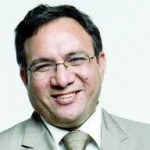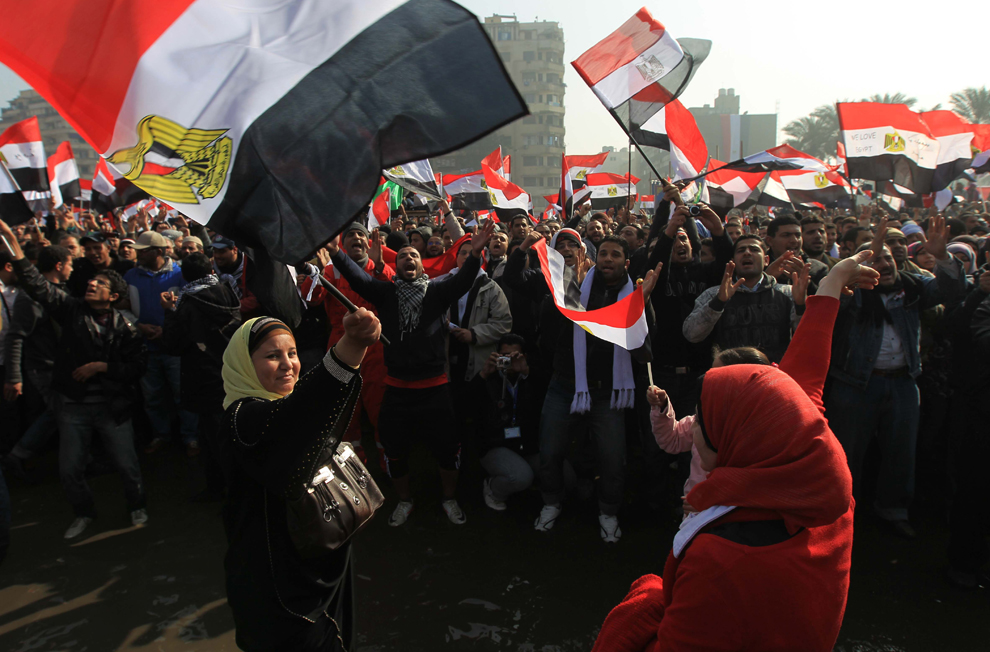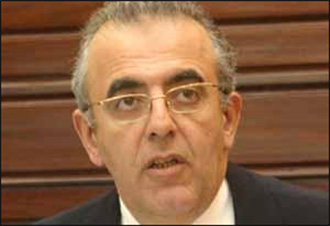Egyptian commentaries have explored an assortment of subjects. Many have continued to analyze the rising wave of political Islam, whereas others have addressed the challenges facing Egypt’s state media and the lack of interest in active political participation.
Wael Kandil
The legend of the last Minister of Media
Al-Shorouk newspaper
The status of Egypt’s state media has been extremely favorable towards the government since the 1952 Coup d’état. In his column, Kandil attempts to analyze the predicaments ahead of governmental media in Egypt. He commences his article noting that for more than 60 years, Egypt’s state media has been serving generals and top ranking figures in the country. Since the establishment of the so-called ‘Ministry of National Guidance,’ a citizen’s basic right to criticize or condemn the media has been violated.
Even after the eruption of the 25 January revolution, state media remained imprisoned in the framework of praising authorities and government institutions. With the ascent of Mohamed Morsy to power, his Muslim Brotherhood group followed the same old path with state media while aiming to selectively pick the administrators of the country’s largest newspapers and media institutions.
Now, both state and independent media undergo several threats. One of the most disturbing signals is the Ministry of Justice’s latest statements criticizing a proposal to cancel any laws that entail jail sentences for journalists. Highlighting suggestions to establish an independent Supreme Council for Media, Kandil ends his column wishing to see this institution coming to light and representing all sorts of Egyptian media professionals. The proposal for such an entity will definitely lead to revisiting the challenges facing the state media dossier once again.
Emad Al-Din Hussein
Act Modest
Al-Shorouk newspaper

Revisiting the protests organized by leftist political parties in Talaat Harb St, Emad Al-Din Hussein criticizes the common description of meager demonstrations as ‘million-man marches.” Protests that bring together small numbers of demonstrators should not be a cause for shame, in Hussein’s viewpoint. One of the serious mistakes that the Muslim Brotherhood’s Freedom and Justice Party (FJP) can do is to undermine even the minimal effects of any protests held by the leftist groups.
He recalls how effective the demonstrations and sit-ins organized by the Kefaya movement and other movements in front of the Journalists’ Syndicate were. Figureheads of the ousted National Democratic Party used to subvert the small-sized protests organized by the opposition. It was only until the 25 January revolution that these protests were proven to be the small drops that started heavy rains.
Addressing the protesters of the leftist parties, Hussein calls upon them to act modestly so their demands will be eventually considered. Amid an atmosphere of political perplexity, the writer can hardly see a fortified skeleton of any authority ruling the country. For him, the situation appears as if Mubarak’s dark 30 years is back. The ruling power should not disregard the effect of meager protests, and political powers should not also exaggerate how they describe their size or demands.
Amr Hamzawy
Do not resign from participation
Al-Watan newspaper

In his column, Amr Hamzawy hails Egyptians to continue with their effective political participation in order to cut further Muslim Brotherhood dominance over the country. The writer decided to call upon the ordinary citizens who have been the primary reason for the eruption of a revolution that caused a political landscape in the country.
It was lately observed that many Egyptians have refrained from being politically active and have lost the hope that the country will restore its independence. The political analyst is also calling upon the Coptic community, who have been striving in many ways to flee the country after the rise of the tide of political Islam. It is only thanks to all Egyptians participation that a new constitution will eventually materialize, safeguarding the basic human rights and freedoms for all portions of the population.
Easing up the fears of many Egyptians, namely Christians and liberals, Hamzawy stresses that political participation is the only savior to a well-written constitution. Concerns about the increasing dominance of Islamists are justifiable and acceptable, yet citizens should not take it as the mere excuse for abstaining from politics. The writer addresses all those opposing Mohamed Morsy and the Muslim Brotherhood, stating that the president has arrived to the palace due to the results of the ballot box, which grants him legitimacy of all sorts. Concluding his article, Hamzawy warns Egyptians not to follow the steps of those whom he describes as ‘fascists’ and not to bet for democracy.
Ammar Ali Hassan
The Muslim Brotherhood and Al-Fankosh
Al-Watan newspaper

Ammar Ali Hassan criticizes the Muslim Brotherhood’s presidential ‘renaissance’ program and regards its content as ‘empty.’ In his estimation, the Muslim Brotherhood has been manipulating the hearts and minds of most Egyptians when they repeatedly used sugarcoated statements while publicizing their unknown program. It seems that the Islamist group has forgotten how its senior figures used to commonly appear in evening talk shows to promote a program that has not minimally been implemented until today.
After altering their slogan from “Islam is the solution” to “We carry the good for Egyptians,” no one is familiar with what kind of ‘good’ they are coming with for the country. The long-awaited ‘renaissance’ program appeared superficially as a well-planned program, where as it can hardly be noticed any of its angles so far. The writer states that only now that analysts can realize why Morsy has kept Kamal Al-Ganzoury acting as the Prime Minister for some time after he had assumed presidency.
It is now obvious why he has selected eight remnants of the National Democratic Party in the recently developed government of Hesham Qandil. The well-promoted ‘renaissance’ program has now appeared to be like the fake candy ‘Fankosh’ that has been excessively advertised for no actual reason. Hassan finally concludes his article comparing the Muslim Brotherhood’s empty ‘renaissance’ program to the unhealthy sugarcoated candy.
Wael Abdel Fatah
We weren’t aiming at an Islamic pharaoh
Al-Tahrir newspaper

The main challenge facing Egypt’s political realm is framing Mohamed Morsy as the new pharaoh, according to Wael Abdel Fatah. The genuine cause of the imbalanced political mood does not stem from the fact that Morsy is an Islamist or was once heading the Freedom and Justice Party (FJP), but the fact that Egyptians insist to turn him into a pharaoh. Messing around with political terminologies is indeed threatening the country’s national interest, in Abdel Fatah’s estimation. This atmosphere encourages extremists to flourish even more and demonstrate their poisonous outlook to the majority of Egyptians.
The writer states that Egypt is not now playing the game of musical chairs of who wins first or who reaches the best. It is rather, in Abdel Fatah’s estimation, that the time has come for allowing more room for wider political participation, that should ultimately aim at building true democratic institutions rather than Islamist ones. Drawing his commentary to a close, Abdel Fatah places emphasis on the importance of unifying efforts to re-establish an Egypt that is not dominated by a certain ideological belief. Egypt should never be a state where its Islamist dominance conquers all of its minorities.




